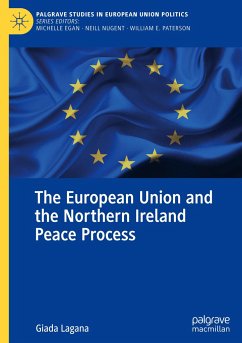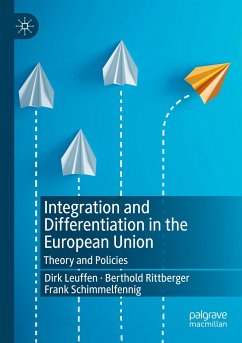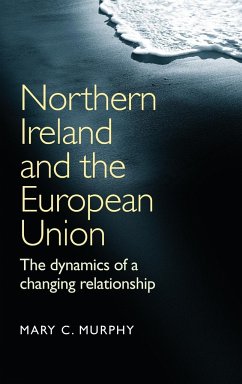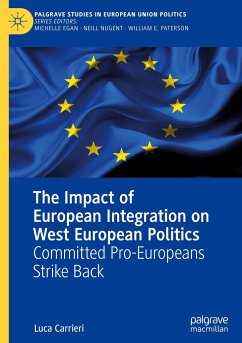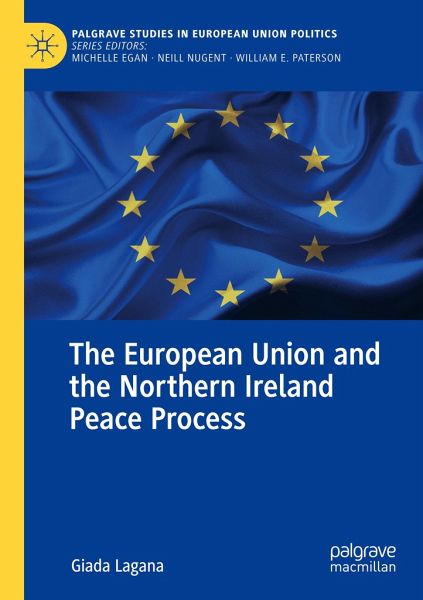
The European Union and the Northern Ireland Peace Process
Versandkostenfrei!
Versandfertig in 6-10 Tagen
106,99 €
inkl. MwSt.
Weitere Ausgaben:

PAYBACK Punkte
53 °P sammeln!
This book examines the economic and political contributions of the EU to the Northern Ireland peace process, tracing the genesis of EU involvement since 1979 and analysing how it acted as an arena in which to foster dialogue and positive cooperation. Based on extensive archival research and exclusive elite interviews this volume provides the first comprehensive study of how the EU contributed to the reconfiguration of Northern Ireland from a site of conflict to a site of conflict amelioration and peace-building. The book demonstrates that the relationship between Northern Ireland and the EU ha...
This book examines the economic and political contributions of the EU to the Northern Ireland peace process, tracing the genesis of EU involvement since 1979 and analysing how it acted as an arena in which to foster dialogue and positive cooperation. Based on extensive archival research and exclusive elite interviews this volume provides the first comprehensive study of how the EU contributed to the reconfiguration of Northern Ireland from a site of conflict to a site of conflict amelioration and peace-building. The book demonstrates that the relationship between Northern Ireland and the EU has been much more significant in the peace process than previously suggested.





